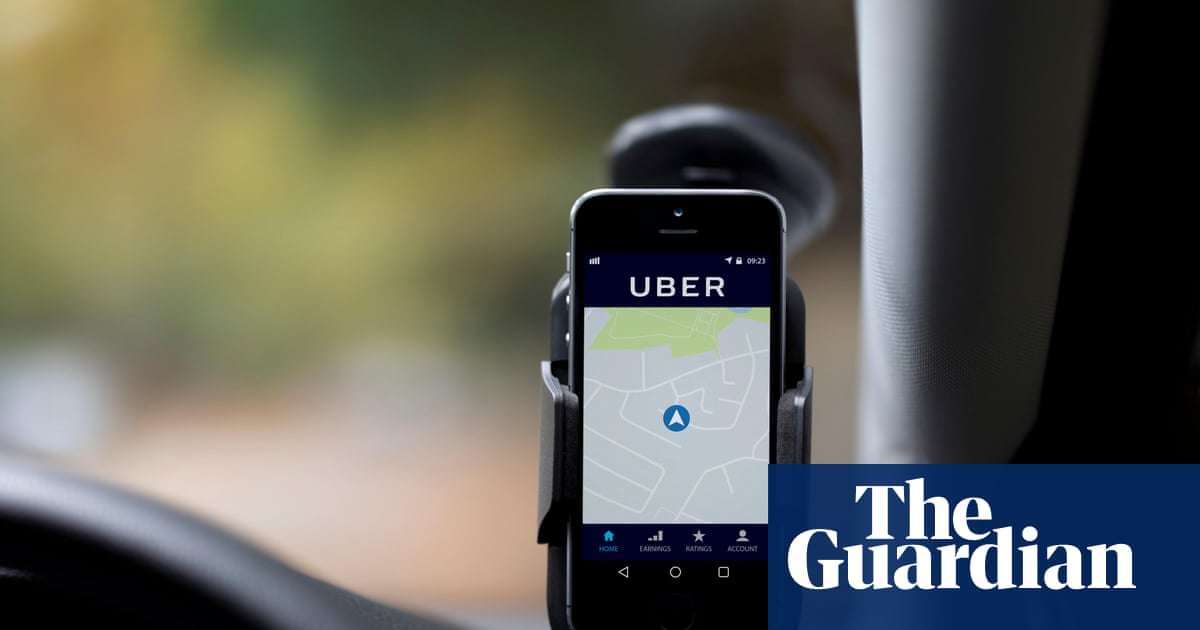Uber has been hit with legal demands to stop using its artificial intelligence driven pay systems, which have been blamed for significantly reducing the incomes of the ride hailing app’s drivers.
A letter before action – sent to the US company by the non-profit foundation, Worker Info Exchange (WIE), on Wednesday – is understood to allege that the ride hailing app has breached European data protection law by varying driver pay rates through its controversial algorithm.
James Farrar, the director of WIE, said: “Uber has leveraged artificial intelligence and machine learning to implement deeply intrusive and exploitative pay-setting systems that have damaged the livelihoods of thousands of drivers.
“Through this collective action, we intend to get a fairer deal for drivers and ensure Uber is held financially accountable for the harm caused by this unlawful use of AI.
“This case is … about securing transparent, fair and safe working conditions for all platform workers.”
The proposed legal case is expected to be filed in Amsterdam, where Uber is based in Europe. The moves come after the WIE partnered with Oxford University during the summer to publish research on Uber driver pay.
The academic paper found that many Uber drivers were earning “substantially less” an hour – while the company was taking a significantly higher share of fares – since the ride hailing app introduced a “dynamic pricing” algorithm in 2023. Dynamic pricing variably sets pay for drivers and fares for passengers and is a later iteration of Uber’s “surge pricing”, which increased fares during periods of peak demand.
The Oxford University research said: “Our findings suggest that post-dynamic pricing, many aspects of Uber drivers’ jobs have gotten worse. Average pay per hour on the app is stagnant, and is lower in real terms in the year following the introduction of dynamic pricing.”
The WIE argued that Uber had trained its algorithms “by using the drivers’ own historic personal data by observing their working practices.
“Under the GDPR, drivers are entitled to demand that Uber stop using this technology, revert to the previous method of transparent pay-setting with a human in the loop, and compensate the drivers for their losses.”
An Uber spokesperson said: “Drivers choose Uber because we offer flexibility over where and when they work, and transparency over every trip they take – including the fare, destination, and their own earnings, before they decide whether to accept. The study WIE collaborated on is not accurate and relies on incomplete and selective data.
after newsletter promotion
“The researchers themselves admit that their analysis ‘does not enable [them] to isolate the causal effect of dynamic pricing on pay’, making any conclusions about driver earnings misleading. We are proud that thousands of drivers continue to make the positive choice to work on Uber as passenger demand and trips continue to grow.”
The WIE alleges that, while Uber announced dynamic pricing in 2023, the “legal harm” commenced in 2020 with “upfront pricing” – where a passenger would be quoted a set fare for a trip.
The workers’ foundation added that if Uber failed to comply with its “demands to cease these practices and compensate affected drivers”, it intended to “bring collective proceedings before the Amsterdam district court under the Netherlands’ collective redress law”.
